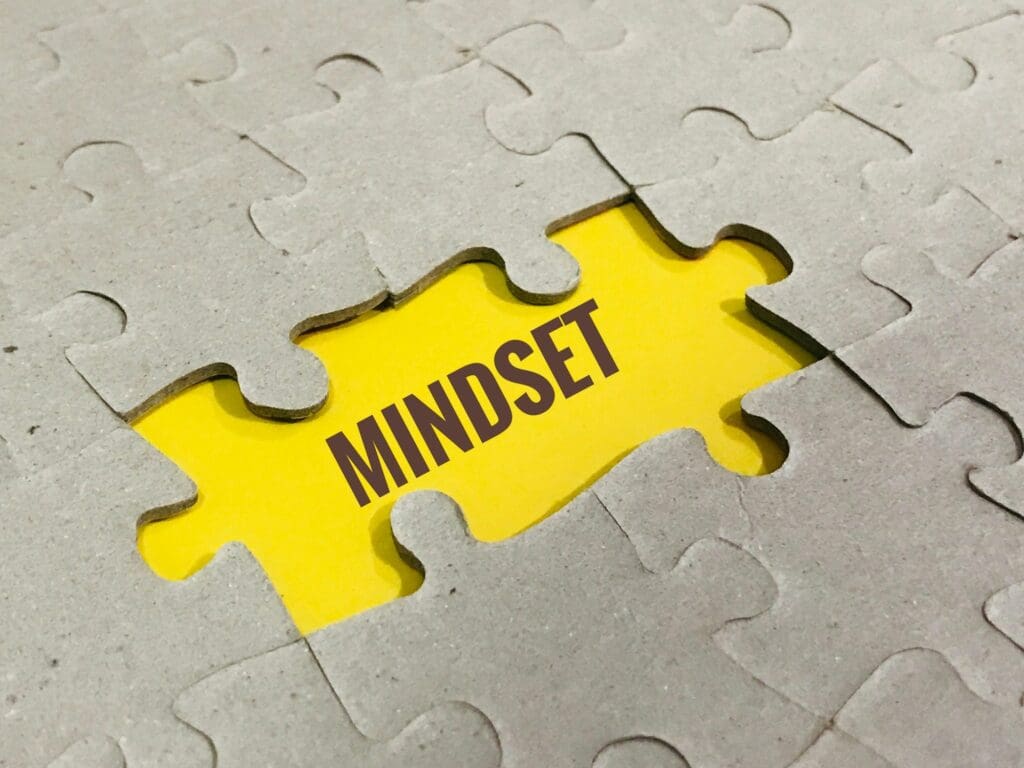


Life’s journey is rife with challenges, both big and small. Whether you’re navigating a personal crisis, dealing with professional setbacks, or simply coping with daily stress, it’s easy to feel overwhelmed. Yet, resilience – the ability to bounce back from adversity – isn’t a trait you’re either born with or without. It’s a skill that can be cultivated through intentional strategies and practices.
As the famed psychologist Viktor Frankl once said, “When we are no longer able to change a situation, we are challenged to change ourselves.” This profound insight underscores the importance of developing resilience in the face of life’s inevitable obstacles.
In this article, we aim to arm you with concrete, actionable strategies to build resilience and thrive, no matter what life throws your way. Let’s embark on this journey together and discover the resilient self within you.

Resilience, at its core, is the ability to navigate through adversity and emerge stronger on the other side. Think of it as the mental and emotional elasticity that allows you to bend without breaking, even in the face of intense pressure.
This invaluable quality empowers you to recover from setbacks and sustain a steady course, no matter how stormy the seas.
However, resilience isn’t something we’re simply born with; it’s a dynamic trait that can be developed and strengthened over time. Just as you would train your muscles through physical exercise, cultivating resilience involves consistent mental and emotional exercises.
For instance, fostering a positive mindset, engaging in stress-reducing activities, and building a supportive network all contribute to your resilience toolkit.
Another crucial aspect of resilience is the ability to find meaning and purpose in life’s experiences, especially during challenging times.
When you can derive valuable lessons from your struggles and see them as opportunities for growth, it reshapes your perspective, making obstacles seem less daunting. This mental shift not only helps you cope better but also prepares you to face future challenges with a fortified spirit.
In essence, resilience is both a quality and a skill. It’s about adopting a balanced and realistic thinking pattern, seeking solutions instead of dwelling on problems, and maintaining hope even when the odds are stacked against you.
When you intentionally work on building resilience, you empower yourself to tackle life’s uncertainties head-on, equipped with the strength and adaptability to thrive.

Developing a positive mindset involves more than just thinking happy thoughts. It’s about cultivating a perspective that empowers you to see challenges as opportunities for growth.
One effective way to start is by practicing cognitive re-appraisal exercises. These exercises help you reframe negative situations, allowing you to find positive aspects in otherwise stressful circumstances.
According to research by Fredrickson, the process of focusing on positivity creates an upward spiral that can significantly enhance your resilience.
Cultivating a Growth Mindset
A key component of a positive mindset is the growth mindset—an approach popularized by psychologist Carol Dweck. When you have a growth mindset, you believe that your abilities and intelligence can be developed through dedication and hard work.
This perspective encourages you to embrace challenges, persist in the face of setbacks, and see effort as a path to mastery.
Example Activity: Try setting aside a few minutes each day to reflect on a challenge you faced. Write down how you responded and identify at least one positive outcome or lesson learned from the experience.
This practice can help transition your thinking into a more growth-oriented space.
Additionally, incorporating positive energy rituals into your daily routine can be a game-changer. These rituals, which could be as simple as morning gratitude journaling or an evening meditation session, help in managing your energy levels and maintaining a positive outlook.
Recognize the Upside of Stress
It’s also important to recognize the upside of stress. While stress is often viewed negatively, it can actually serve as a powerful motivator and catalyst for improvement.
By choosing to see stress as a challenge rather than a threat, you can harness this energy positively. MindMatters organization suggests that redefining your relationship with stress can enhance your performance and build mental toughness.
Integrating these strategies into your life might take time and practice, but the payoff is worth it. Developing a positive mindset is a powerful way to build resilience and tackle life’s challenges head-on.
In a world brimming with uncertainties and constant demands, stress is an inevitable part of life. But it doesn’t have to control you.
By learning effective stress management techniques, you can navigate through life’s challenges with poise and confidence. This section delves into various strategies that can help you maintain your composure, even when things get tough.

Engaging in regular physical activity is more than just a way to stay fit; it’s a proven strategy to enhance your resilience. When you exercise, your brain releases endorphins, often referred to as ‘feel-good’ hormones.
These endorphins bolster your mood and foster a sense of well-being, acting as a natural buffer against stress and adversity.
Implementing Physical Activity into Your Daily Routine
Integrating movement into your daily life doesn’t have to be daunting. Start small, for instance, by taking a brisk walk during your lunch break or practicing yoga in the morning.
These seemingly minor adjustments can have a significant impact over time. If you enjoy social settings, consider joining a local sports team or a group fitness class. This not only keeps you active but also builds a sense of community and support, another pillar of resilience.
The Role of Consistency
Consistency is key when it comes to reaping the resilience-boosting benefits of physical activity. Designate specific times in your schedule for exercise and stick to them.
Treat these appointments with the same importance as you would for important work meetings or family obligations. Over time, this commitment to regular physical activity becomes a habit, contributing to your overall resilience and well-being.
Remember, the goal is to find activities you enjoy and make them a regular part of your life. Whether it’s dancing, cycling, swimming, or hiking, the right kind of movement for you is the one that makes you feel invigorated and more capable of handling whatever challenges come your way.

What you eat profoundly impacts how you feel and how well you handle stress. A balanced diet supplies your body with essential nutrients, giving you the energy to cope with life’s challenges and supporting your mental well-being. Let’s explore how nutrition plays a crucial role in building resilience.
1. Stay HydratedStaying well-hydrated is crucial for optimal brain function. Dehydration can lead to fatigue, impaired concentration, and mood disturbances. Aim for at least eight glasses of water a day to keep your mind sharp and your mood stable.
2. Include Omega-3 Fatty AcidsFoods rich in Omega-3 fatty acids, such as salmon, chia seeds, and walnuts, can help reduce inflammation and improve brain health. These nutrients have been linked to lower levels of depression and anxiety, fostering a more resilient attitude.
3. Eat a Rainbow of Fruits and VegetablesColorful fruits and vegetables are packed with antioxidants, vitamins, and minerals that protect your body from stress. For example, berries provide antioxidants, while leafy greens offer folate, which supports mood regulation.
4. Balance Your Blood SugarFluctuating blood sugar levels can cause mood swings and energy dips. Incorporate complex carbohydrates like whole grains, legumes, and vegetables, and pair them with protein to maintain stable blood sugar levels.
5. Incorporate ProbioticsA healthy gut contributes to a healthy mind. Probiotic-rich foods like yogurt, kefir, and sauerkraut can enhance gut health and, by extension, improve your overall mood and stress resilience.
6. Mindful EatingPaying attention to what you eat can transform your relationship with food. Practice mindful eating by savoring each bite and listening to your body’s hunger and fullness cues, cementing a positive relationship with food and reducing stress.
By prioritizing a nutrient-dense diet and staying hydrated, you can significantly boost your physical and mental resilience. Remember, your body’s fuel directly influences your ability to overcome challenges, so nourish it well.

Life is full of ups and downs, and it’s how we respond to these challenges that defines us. Resilience, the ability to recover from setbacks and adapt positively to difficult circumstances, is crucial in navigating these turbulent waters.
Building resilience doesn’t happen overnight; it requires a combination of personal commitment and effective strategies. By understanding and harnessing the power of resilience, you can turn obstacles into opportunities and emerge stronger than ever before.


To boost your resilience, consider incorporating some proven techniques into your daily routine. Start with practicing self-awareness.
This involves regularly reflecting on your thoughts and emotions, which can help you understand your stress triggers and how to better manage them. Keeping a resiliency journal where you jot down your reflections and progress can be immensely helpful.
Additionally, engage in deliberate practice. Break down your resilience-building activities into small, manageable tasks and work on them consistently. This could involve setting daily goals or challenges that push you slightly out of your comfort zone.
Don’t forget to leverage your support system. Lean on friends, family, or colleagues when you’re facing tough times. Sharing your experiences with others can not only lighten your emotional load but also provide new perspectives on handling challenges.
Maintaining a balanced and realistic thinking pattern is crucial. When faced with a challenge, instead of dwelling on the negatives, try to focus on potential solutions and what you can control. This shift in mindset can be powerful.
Another effective technique is to incorporate tiny activities that improve willpower and resilience. For instance, try something new, like a craft activity or a hobby that piques your interest. These activities can be creative outlets and serve as constructive distractions.
Bouncing back from setbacks starts with acceptance and a mindset shift. Embrace each challenge as an opportunity to learn and grow, rather than as insurmountable obstacles. Take a moment to reflect on the situation, identify what went wrong, and understand your emotions.
Developing self-awareness can play a vital role. By being mindful of your thoughts, feelings, and reactions, you can better navigate through tough times.
Consider maintaining a resilience journal to keep track of your experiences, insights, and growth. This practice not only helps you process and learn from setbacks, but also provides a tangible record of your resilience journey.
Next, create an action plan. Outline practical steps you can take to address the issue and move forward. Break down larger tasks into manageable chunks, and focus on one step at a time. This strategy not only makes the task less daunting, but also provides a sense of accomplishment as you progress.
Additionally, don’t hesitate to seek support. Reach out to friends, family, or mentors who can offer encouragement and perspective. Sometimes, just talking things through with someone can lighten the emotional load and provide new insights.
Finally, cultivate resilience habits such as regular physical activity, healthy eating, and mindfulness practices. These activities can boost your overall well-being, making it easier to handle stress and bounce back from setbacks more effectively.
Unlocking your inner resilience begins with acknowledging that it is an intrinsic part of you. Start by identifying past experiences where you have successfully overcome obstacles.
Reflect on these moments, recognizing your strength and capability. Keep a resiliency journal to document these instances and revisit them whenever you need a reminder of your inner power.
Engage in daily activities that gradually build your willpower. Even small actions, like sticking to a morning routine or saying “no” when overwhelmed, can reinforce your resilience.
By practicing mindfulness and self-awareness, you become more attuned to your responses to stress and better equipped to handle adversity.
Adopting a balanced and realistic thinking pattern is crucial. Instead of catastrophizing, break down challenges into manageable steps. Remember, it’s about progress, not perfection.
Additionally, helping others through volunteer work or supporting friends can increase your sense of self-worth and connection, further unlocking your resilient nature.
Ultimately, resilience requires deliberate practice. Embrace uncertainty with a growth mindset, knowing that every challenge is an opportunity to reinforce your resilience. With consistent effort and self-compassion, you’ll find that your inner resilience becomes a robust tool for navigating life’s challenges.
Developing resilience in the face of adversity starts with a clear understanding that setbacks are an inevitable part of life. One of the most powerful strategies involves deliberate practice and self-awareness.
Begin by recognizing your stress triggers and observing your reactions. This awareness allows you to interrupt negative patterns and choose healthier responses.
Here are some actionable steps to enhance your resilience:
Building resilience is not an overnight journey, but a continuous process of personal growth and adaptation. As you’ve seen, the strategies offered range from mental shifts to tangible actions, all aimed at fortifying your ability to bounce back from life’s inevitable hurdles.
Whether it’s embracing a positive mindset, engaging in regular physical activity, or making thoughtful nutritional choices, every step you take brings you closer to a resilient self.
Remember, resilience also involves understanding and accepting that change is a part of life. Focus on the aspects you can control and learn to let go of those you cannot.
By incorporating daily habits like reflecting on three positive things that happened each day, you’ll end your day on a high note, fostering a cycle of optimism and strength.
Ultimately, the key lies in being proactive and curious, learning from experiences, and using those lessons to navigate future challenges.
As you continue to implement these strategies, you’ll find that not only can you overcome obstacles more effectively, but you can also turn them into valuable opportunities for growth. Stay strong, stay curious, and keep moving forward. Your resilient self awaits.









